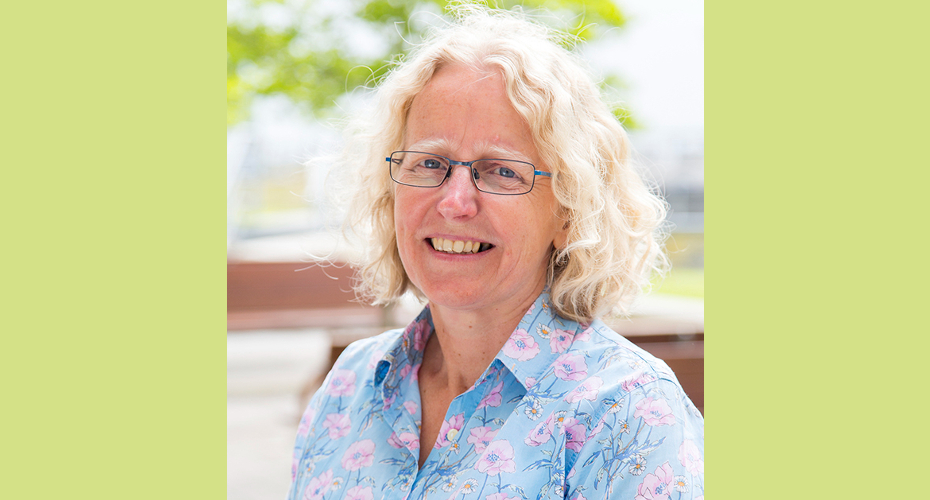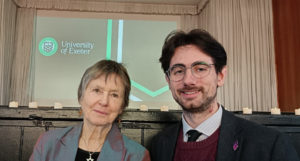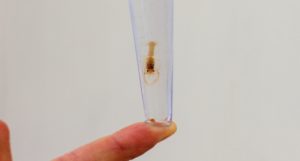Penryn Perspectives: Professor Jane Wills

“The Penryn campus and working in Cornwall resonate deeply with my sense of family heritage and history.”
Professor Jane Wills
Jane Wills is a Professor of Geography at the Centre for Geography and Environmental Science (CGES) in the Department of Earth and Environmental Science (DEES) and was director of the Environment and Sustainability Institute from 2020-23. Jane’s research interests are broad, including the changing geopolitical economy of work and regional economic development; urban political alliances such as living wage campaigns; and the politics and practice of localism. Since moving to the University of Exeter, Cornwall in 2017, she has been exploring the geography of public and policy engagement for sustainability, and nature recovery and its integration into regional development policy and practice.
In her Penryn Perspective, Jane talks about returning to her family’s roots, the power of ‘place’ and the importance of listening to conversations before setting a research agenda.
“For many generations, my family was rooted in the fishing industry of Newlyn but my Dad and his Dad were both Methodist Ministers and that involved moving house every three years. Cornwall was the constant geography for us all. Wherever we were based, whatever we were doing, we always came back to Cornwall.
“Relatives would talk to me about the creation of the campus here in Penryn. I first visited it on one of many family holidays to Cornwall, and must admit to being a bit underwhelmed! But because the University taught a geography degree from Penryn, it meant there was the possibility that I could work there at some point in the future and I kept an eye on developments. Naturally, there was a strong geographical draw because of my family’s history and love of the place.
“I was based at Queen Mary, University of London, prior to getting the job in Cornwall, and in many senses, the two locations are like chalk and cheese. At QMUL, my research was focused upon coalition politics in urban environments, and I had done lots of work on urban social movements, like the Living Wage campaign, which was very pertinent to East London. You would think that moving to a rurally based institution on the South West peninsula was as extreme as you could get!
“But as a geographer, I always start from the concept of ‘place’. I try to understand what is going on in the socio-political economy around me and make the effort to embed myself in ongoing conversations and debate. It is from there that I build my research agenda, as opposed to finding my questions in the academic literature. This allowed me to make the transition from East London to Cornwall and to find common ground.
“What I quickly discovered was a remarkable level of innovation evident in many different areas of Cornish civic, business and community life. One of the first projects I worked on when I arrived involved Locality’s Commission on the Future of Localism, chaired by Sir Bob Kerslake. I was able to link Cornwall with the national commission and while that might sound very parochial and uninteresting, we found evidence of incredibly innovative behaviour at the hyper local level. There has been a process of devolution, whereby public assets are passed down to local Town and Parish Councils from Cornwall Council. While initially that has been a cost-saving measure, when you look deeper, you can see genuine innovation in how the councils are managing important assets for the public good. The transfer of toilets, libraries, parks and community centres has saved them and prevented the closures that have taken part in many other parts of the country.
“Later on, I was fortunate enough to take on the directorship of the Environment and Sustainability Institute and lead it through its tenth anniversary in 2023. It’s clear to me that the ethos of the ESI, dating back to Kevin Gaston’s inaugural directorship, which prioritised regional development, place-based working, and collaborating with local businesses and organisations, has permeated the wider University community. And its focus on environmental growth clearly presaged the nature recovery strategies that are coming in now.
These are themes intrinsic to the work I am now doing, including the Nature Recovery and Regional Development (NaRReD) project. We are working with Britain’s Leading Edge – a partnership of 12 councils, including Cornwall and the Isles of Scilly, that is seeking to reframe how we view the rural periphery. Through this project we are asking ‘what does best practice in nature recovery for people look like?’ ‘and ‘can we scale up those lessons to wider policy, so that we achieve positive synergies between nature recovery and regional development, focusing on jobs, skills, training, and business growth?’ Cornwall is pioneering in this approach and has been so for a decade.
“On a more personal level, being in Cornwall has been transformative for my family, and especially for my son, who is disabled. He needs green space, fresh air, peace and quiet, and that was a challenge when we were living in London. He needed a different kind of life, and we’ve found that here. My daughter works for full time the Tresco Estate in the Isles of Scilly, and my husband, well, he loves boats and no more needs to be said. Together, we are writing a new story in our family history and our connections to Cornwall.”



